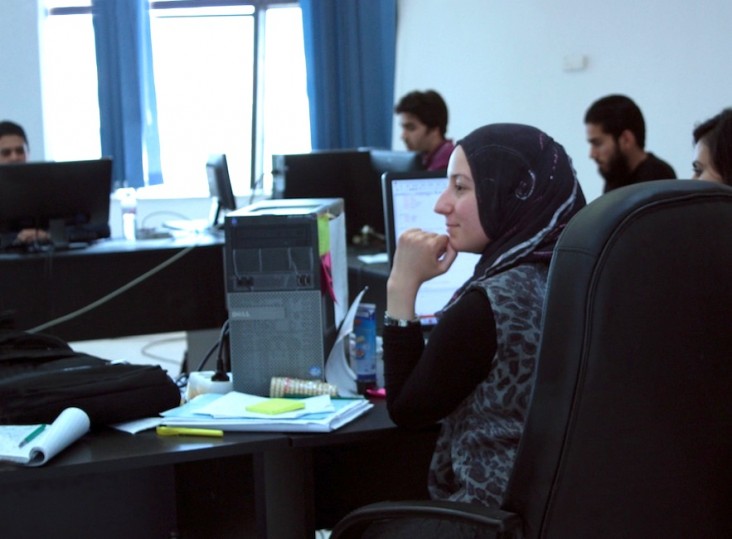
Wassel Berrayana, director of a company called Proxym-IT, credits his unorthodox hiring policy—recruiting fresh college graduates—with fueling his firm’s rapid growth. Whereas many Tunisian employers shy away from recent graduates’ lack of experience, Berrayana sees it as a source of initiative and creativity.
A tireless innovator himself, Berrayana spent six months working in Silicon Valley a decade ago and declined a long-term job offer there to return to Tunisia with his wife and young daughter. “I asked myself, ‘Why don’t I create something Silicon-Valley-like in Tunisia instead?’" he recalls.
Berrayana launched Proxym-IT in 2006 with a team of two and based in Sousse, a city 100 miles south of the capital and not far from his native seaside town of Téboulba. Because Tunisia’s fledgling IT industry was almost entirely based in Tunis, along with most of the seasoned IT professionals, investing in new local hires became the strategy “by default,” he says.
The strategy paid off. Berrayana now oversees 75 people at Proxym-IT and its recent spin-off Apptiv-IT. Around 90 percent were hired as recent graduates—contributing to a constant flow of creative energy. The approach came with a cost, however. Young engineers are required to master a wide array of critical non-programming skills on the spot.
“Most of us here are geeks. We love the work, and we love information technologies,” says Marouan Omezzine, 29, a one-time college recruit who now manages the mobile and telecom application development unit. “But this means that for us, the sales part was previously a black box.”
This became a challenge for Proxym-IT as its young recruits advanced into management roles. As the ICT industry grew increasingly saturated with competing firms for clients, Proxym-IT staff needed to hone the clarity of their strategic vision and their tools for pursuing it to maintain upward momentum.
Technical assistance and training provided by USAID in late 2012 helped managers like Omezzine step up to the marketing plate and master methods of market research, positioning and product pitching.
“We’re now more confident in how to present a product—and our company as a whole,” says Omezzine. New skills and a boost to entrepreneurial confidence have already yielded two new customers in Europe, with a third in the final stages of contract negotiation.
Parallel to helping Proxym-IT broaden its client base, USAID helped the company to expand its ranks through interactive workforce training for new recruits, co-funded by the firm in December 2012. The classes equipped 14 aspiring young engineers with critical workforce skills such as teamwork, organization and time management, and culminated in full-time job offers at Proxym-IT and Apptiv-IT.
In this way, Berrayana says, his two firms were able to make a small but tangible contribution to Tunisia’s transition. “The more we create skilled jobs, the more people are aware of and open to democracy,” he says. “It’s not exactly political acting, but I think it's citizen acting.”







Comment
Make a general inquiry or suggest an improvement.